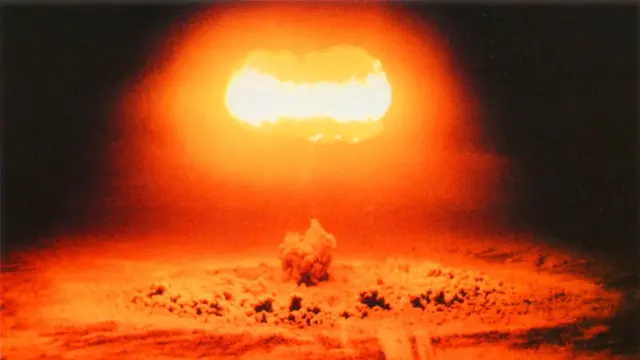Leaders of the South Asian Association for Regional Cooperation (SAARC) met in Nepal's capital Kathmandu to discuss ways to promote integration as the organization pushes towards one community by 2030.
The eight SAARC member states are holding discussions for collective development at the two-day summit that kicked off on Wednesday under the theme "Deeper Integration for Peace and Prosperity."
Leaders of India, Pakistan, Nepal, Bhutan, Bangladesh, Sri Lanka, Maldives and Afghanistan gathered at the opening ceremony on the 18th summit with similar goals in mind. Key among them was eradicating rampant poverty in a region that accounts for one fifth of the world's population, another was empowering youth and promoting regional trade.
Each leader ran through the challenges for SAARC as they viewed it with most appealing for deadlocked policies to be given new life through greater cooperation. They acknowledged that SAARC despite its nearly three-decade existence had failed to achieve sustainable growth, peace and security as envisioned by the founders.
All of them also appealed for cross border cooperation in liberalizing trade and fighting climate change, which is affecting all member states.
A slew of promises on crucial development were made by Indian Prime Minister Narendra Modi insisting his vision for India and the region were identical.
"Nowhere are collective efforts more important than in South Asia and nowhere else it is more moderate," he told leaders at the opening ceremony.
"We face a long climb to the summit of development but I have confidence in our boundless potential. There is much to learn from each other and even more to do together," he said.
In an attempt to fast track much needed integration Modi pledged to assist funding for infrastructure in the region, streamline custom duties at borders, provide 3-5 year business visas to investors and implement a travelers' card for the bloc.
Immediate medical visa was also assured along with funds to set up a laboratory to combat tuberculosis in the region. India will also release vaccines to rid SAARC of polio.
"When we speak of SAARC we hear two reactions, I'm sorry to say. Today less than 5 percent global trade take place between members and less than 1 percent of India's companies invest in SAARC. Still harder and expensive to travel within the region. How much have we done to put our resources into shared prosperity?" he questioned.
Insisting India's trade surplus with many of its neighbors is " neither right nor sustainable" the leader noted he will "address concerns and create a level playing field." Indian companies will also be urged to invest regionally and local businesses in SAARC countries to source capital from the sub-continent.
Modi is also expected to hold bilateral talks with many of the SAARC members and observers but reports indicate he will not meet with his Pakistani counterpart who is also attending the summit that will wrap up on Thursday.
Pakistan Prime Minister Nawaz Sharif insisted his country stands with SAARC to promote regional cooperation.
"The underdevelopment of South Asia is closely linked to lack of affordable energy. We need to collectively focus on harnessing indigenous energy as well as trans-regional gas and fuel pipelines, " he noted.
Pakistan is also likely to host the next SAARC summit after an offer was made by Sharif.
Observer China has assured it will continue to deepen ties with South Asian countries at the 18th SAARC Summit, outlining extensive policies to engage on trade liberalization and development.
Recalling the historic visit of Chinese President Xi Jinping to Maldives, Sri Lanka and India in September, Chinese Vice Foreign Minister Liu Zhenmin insisted greater engagement will take place in the coming years.
"China put forward series of initiatives (including), increasing trade between South Asia and China to 150 billion U.S. dollars and investment to 30 billion U.S. dollars, 20 billion U.S. dollars in concessional loans and we will fully deliver on these commitments," he told the gathering.
Since last year China has put forward a host of initiatives including the 21st Century Maritime Silk Road, the Asian Infrastructure Investment Bank and contribution of 40 billion U.S. dollars to set up a Silk Road Fund.
China has been an observer of SAARC since 2006 and has pledged to increase engagement with the bloc. Eight others including the European Union, the United States and Australia are also observers.
Established in 1985 in Bangladesh, SAARC groups Afghanistan, Bangladesh, Bhutan, India, Maldives, Nepal, Pakistan and Sri Lanka. Afghanistan joined SAARC as its eighth member in 2007.
Preparations are underway to sign three SAARC agreements that aim to enhance integration in key areas. Foreign ministers from each member state are expected to sign the SAARC Railway Agreement, Motor Vehicle Agreement and Framework Agreement on Energy Co- operation.
A declaration that touches on a wide range of issues including counterterrorism, the promotion of trade and investment, infrastructure development, youth employment, reduction of telecom tariffs, regional connectivity, social security for elderly people, literacy, and SAARC's transformation into the South Asian Economic Union by 2030 is expected to be released at the end of the summit.
On the second day of the summit, the SAARC leaders will be taken to Dhulikhel for a retreat. The leaders will have an opportunity to hold informal talks for over two hours before they are flown back to Kathmandu after lunch.
The SAARC leaders will then attend the closing ceremony and witness the signing of three different SAARC-level agreements related to enhancing connectivity within the region. President Ram Baran Yadav is scheduled to host a dinner at Shital Niwas later in the evening in honor of the visiting heads of state and government.
At the end of the summit, some 1.5 billion population of SAARC will be hoping all the talk will eventually translate to greater action on the ground.
 简体中文
简体中文

